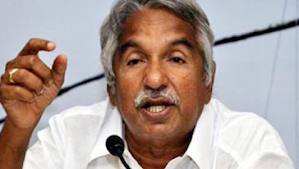
Thiruvananthapuram, Feb 2: Kerala Chief Minister Oommen Chandy on Saturday ruled out a re-investigation into the Suryanelli gang-rape case, saying top courts had cleared the allegations raised against Rajya Sabha Deputy Chairperson P.J. Kurien.
The allegation levelled by the victim was not new and it had been investigated and cleared by courts including the Supreme Court, Mr. Chandy said.
Terming the attack against Mr. Kurien as “unfortunate”, he said the media was highlighting the victim’s statement as something new.
She had raised this allegation 17 years ago and it had been found untrue by three probe teams, he said, adding that the Kerala High Court and the apex court had allowed Mr. Kurien’s discharge petition.
On the CPI(M)-led LDF attack against Mr. Kurien on the issue, Mr. Chandy said, “Some are trying to trigger a controversy over a matter which had been raised 17 years ago.”
Asked if the government intended to order a re-probe as the victim was sticking to her allegation against Mr. Kurien, Mr. Chandy said the LDF ruled the State for ten years after this incident and they could not do anything to prove the charge.
“Not only that, government can proceed only in accordance with law. Opposition is trying to create smokescreen on the issue.” Mr. Chandy said the LDF-led opposition was trying to politicise the matter by targeting a person and this would only help the real culprits escape. “This is very unfortunate,” he added.
The victim had on January 29 sent a letter to her advocate in the Supreme Court to explore the possibility of a review of the apex court order quashing all charges against Mr. Kurien.
Meanwhile, a member of the Special Investigation Team that probed the case in 1996 said Mr. Kurien’s itinerary on the day when she alleged that she was sexually exploited was not fully investigated.
K.K. Joshua, a team member, claimed that SIT chief Siby Mathews had not made any attempt to collect the itinerary details of Mr. Kurien, who was then Union Minister and travelled without escort between 5 p.m. and 10.30 p.m..
The victim had always been consistent in her statements and mentioned the names of 42 people who had exploited her, Joshua told TV channels.





Comments
Add new comment